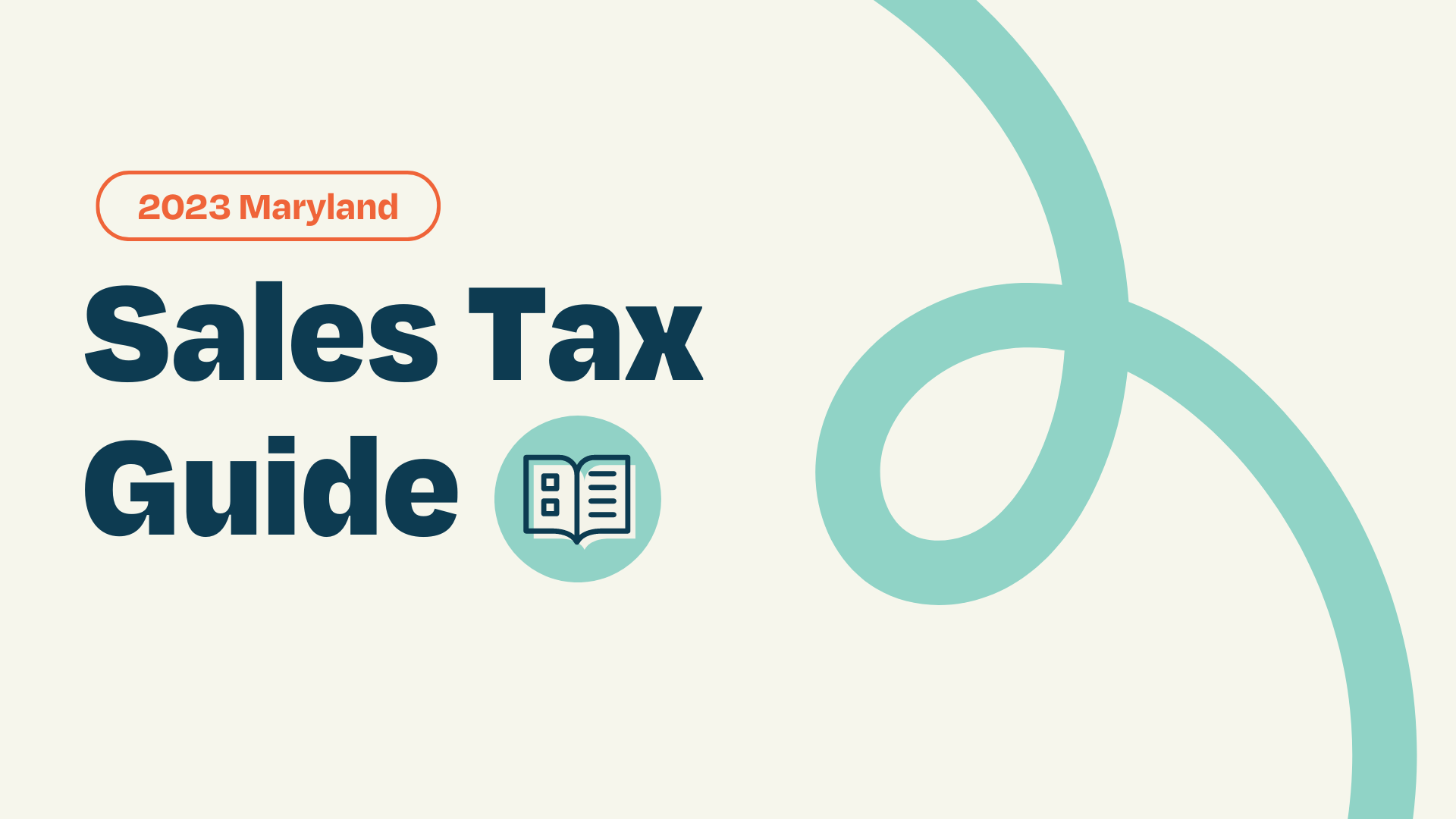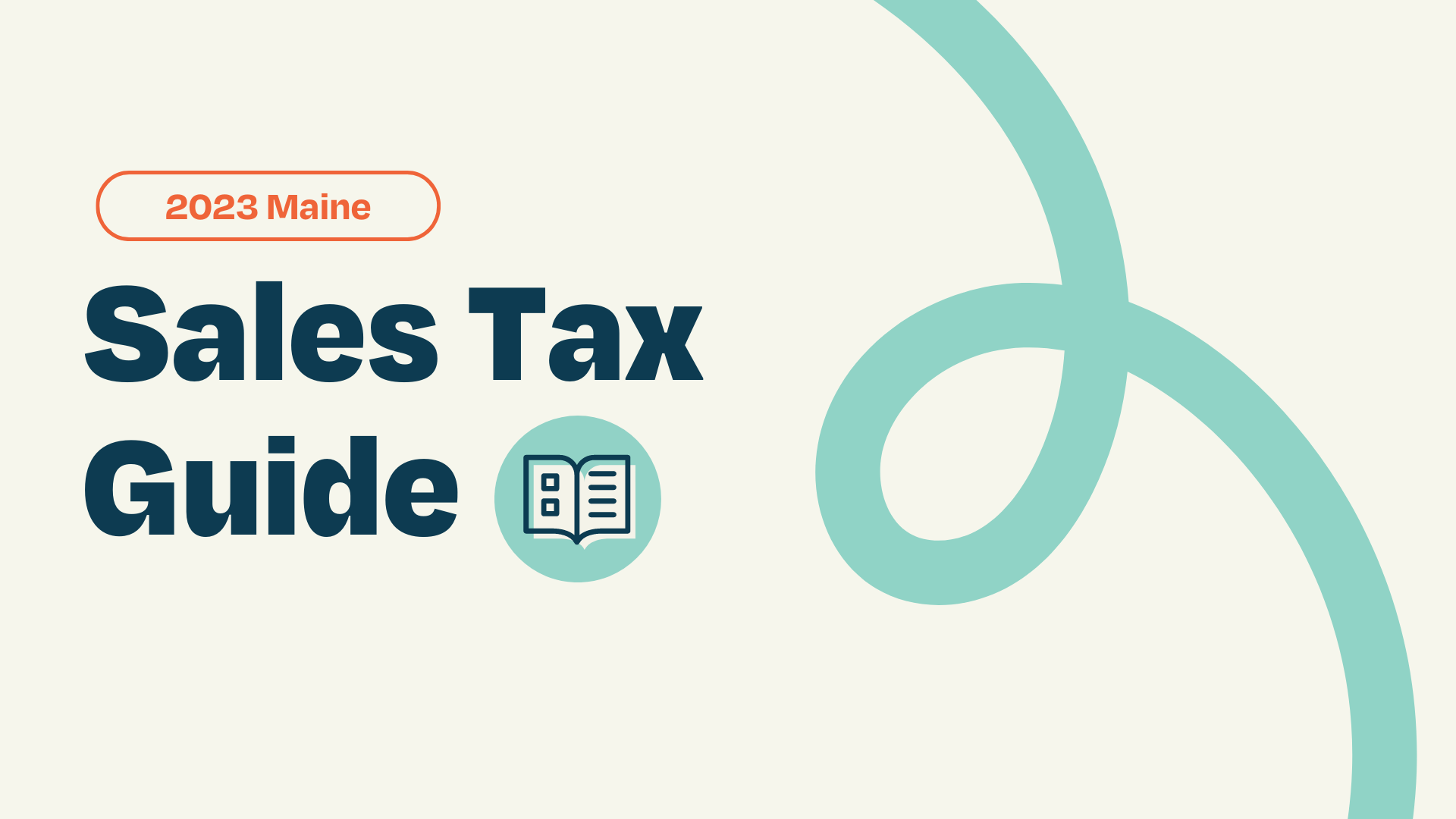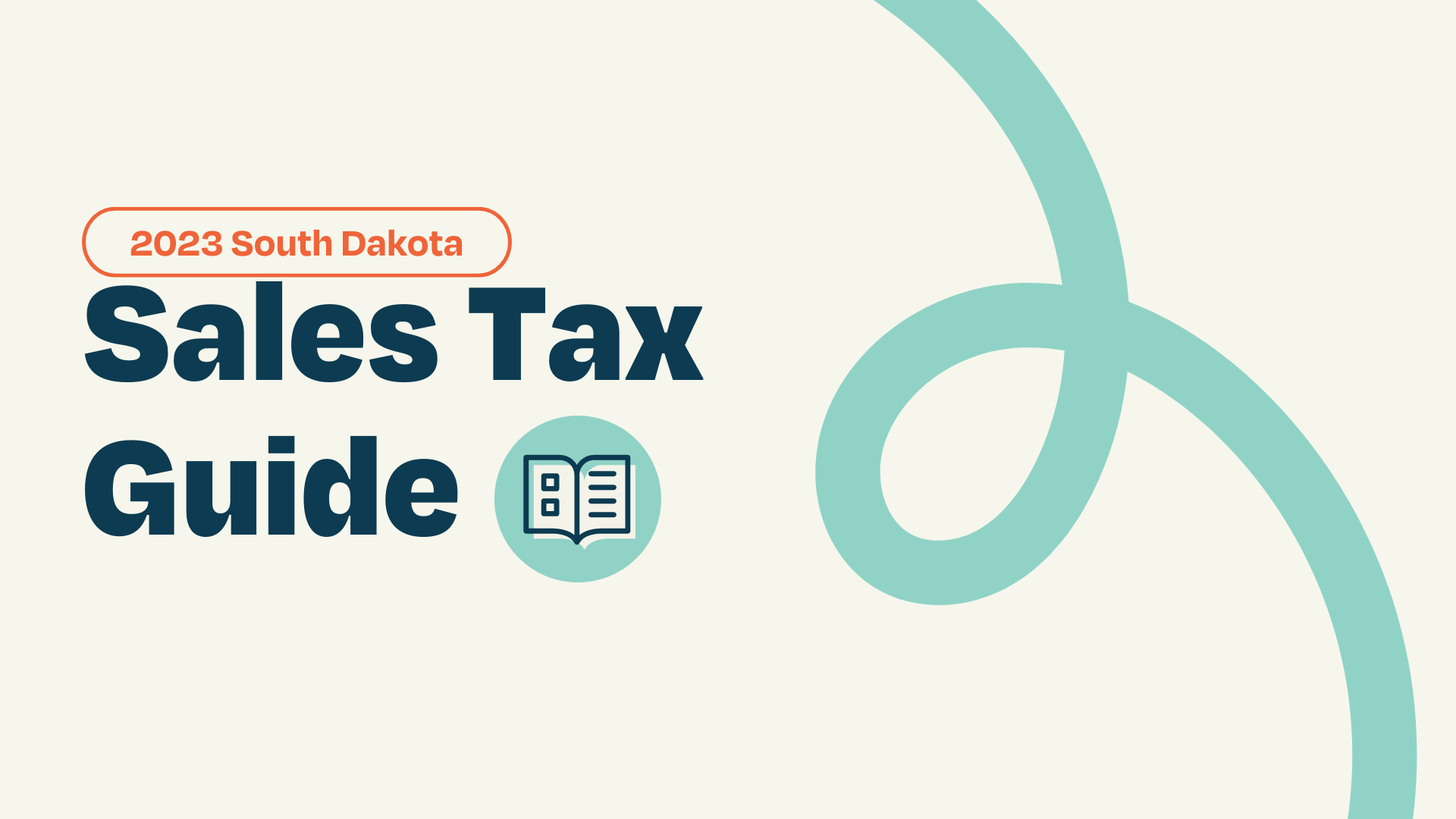1 min read
Maine 2023 Sales Tax Guide
Maine Sales Tax in a Word Ahoy there, small business captains! As you set sail on the vast ocean of entrepreneurship, there's no doubt you'll...

Are you ready to embark on a thrilling journey through the world of Maryland sales tax? As we set sail, we'll guide you through the sometimes choppy waters of filing and paying sales tax, ensuring you stay on course and avoid potential pitfalls. With our treasure map in hand, we'll reveal the secrets to filing Maryland sales tax returns accurately and on time, helping you steer clear of costly mistakes.
In this blog, we'll cover everything you need to know about the filing process, from determining when to file and pay, to understanding penalties and incentives. We'll even share five invaluable tips to help you avoid common mistakes and keep your sales tax ship afloat. So, grab your compass, hoist your sales tax flag, and join us as we set sail to conquer the exciting world of Maryland sales tax returns!
|
Table of Contents |
Navigating the waters of Maryland sales tax can be a daunting task, but fear not, intrepid tax adventurers! You're not alone on this voyage. When you need assistance or have questions, the Maryland Comptroller's Office is your trusty port of call. Let's drop anchor and learn more about who manages Maryland sales tax and how to contact them.
The Maryland Comptroller's Office is the primary authority responsible for administering and enforcing sales and use tax laws in the state. This office is your go-to resource for all things related to Maryland sales tax, including registration, filing, and payment.
Should you find yourself in need of guidance or assistance, the Comptroller's Office offers several contact options to ensure you receive the support you need while navigating these tax-infested waters.
Comptroller of Maryland
Revenue Administration Division
110 Carroll Street
Annapolis, MD 21411
For general sales and use tax inquiries, send an email to: taxpolicy@marylandtaxes.gov
If you prefer a more personal touch, the Comptroller's Office has a dedicated sales and use tax information line: (410) 260-7980 or toll-free within Maryland at 1-800-MD-TAXES (1-800-638-2937).
For an abundance of information and resources at your fingertips, visit the Comptroller's website at www.marylandtaxes.gov. Here, you'll find useful tools, forms, publications, and FAQs to help you sail through Maryland sales tax with ease.
Now that you have the Maryland Comptroller's Office as your trusty ally, you're better equipped to tackle the challenges of Maryland sales tax with confidence. Remember, when the seas get rough, don't hesitate to reach out for assistance. Your tax-adventure crew is always here to help you safely navigate to your destination.
As you navigate the vast seas of sales tax, it's critical to determine whether your vessel has established nexus in Maryland. Nexus is like a powerful anchor that ties your business to the state, creating an obligation to collect and remit sales tax. In this section, we'll explore the different types of nexus that can create such obligations in Maryland.
Maryland, like many states, has various ways a business can establish nexus. These include physical nexus, economic nexus, affiliate nexus, click-through nexus, and marketplace nexus. Understanding these types of nexus will help you determine if your business has obligations for Maryland sales tax.
Physical nexus occurs when a business has a tangible presence in the state, such as:
Having a brick-and-mortar location, office, or warehouse
Storing inventory or using a fulfillment center
Employing salespeople or representatives in the state
Regularly conducting in-person sales or services in Maryland
If your business has a physical presence in Maryland, you're likely required to collect and remit sales tax on taxable sales made within the state.
Economic nexus is established when a business has a significant economic presence in the state, even without a physical presence. In Maryland, economic nexus is triggered if, during the previous calendar year or the current calendar year:
Your gross revenue from sales made to Maryland customers exceeds $100,000, or
You have made sales to Maryland customers in 200 or more separate transactions
Affiliate nexus occurs when a business has a relationship with an in-state entity that helps the business establish or maintain a market in Maryland. This can include:
A parent company, subsidiary, or other related business entity operating in the state
A representative or agent who refers customers to your business
If your business has affiliate nexus in Maryland, you may be required to collect and remit sales tax on taxable sales made within the state.
Click-through nexus is established when an out-of-state retailer contracts with a Maryland-based affiliate to refer customers through a website link or online advertisement. If the retailer's cumulative gross receipts from these referrals exceed $10,000 during the preceding four quarterly periods, they are required to collect and remit Maryland sales tax.
Marketplace nexus occurs when a marketplace facilitator, such as Amazon or eBay, sells or facilitates the sale of a retailer's products to customers in Maryland. In this case, the marketplace facilitator is typically responsible for collecting and remitting sales tax on behalf of the retailer.
By understanding the various types of nexus that can create sales tax obligations in Maryland, you'll be better equipped to determine if your business is anchored in this state. Should you find yourself tethered to Maryland sales tax, fear not, for your trusty tax-adventure crew is here to help you navigate these waters with ease.
It's time to embark on the next leg of our Maryland sales tax adventure: registration. Before you can collect and remit sales tax in this state, you need to register for a Maryland sales tax license. In this section, we'll guide you through the registration process, discuss costs, and explore additional agency registrations that may be required.
To ensure smooth sailing in Maryland sales tax waters, follow these steps to register for a sales tax license:
Gather the necessary information: Before you begin the registration process, gather the following details to make the process as seamless as possible:
Business name and address
Legal structure (e.g., sole proprietorship, partnership, corporation, etc.)
Federal Tax ID Number (EIN) or Social Security Number (for sole proprietors)
Names, addresses, and Social Security Numbers of all owners, partners, or corporate officers
North American Industry Classification System (NAICS) code that best describes your primary business activity
Visit the Maryland Comptroller's Online Service Center: Access the Maryland Comptroller's Online Service Center to begin the online registration process.
Create an account or log in: If you're a new user, you'll need to create an account. If you already have an account, log in with your username and password.
Complete the Combined Registration Application (CRA): Once logged in, select the "Register a New Business" option and complete the Combined Registration Application (CRA) to apply for a Maryland sales tax license. The application will ask for the information you prepared earlier, as well as details about your business activities, estimated taxable sales, and more.
Submit your application: After completing the CRA, review your application for accuracy and submit it electronically. You should receive a confirmation number upon submission.
Obtain your sales tax license: Once your application is approved, you'll receive your Maryland sales tax license by mail. This may take up to 4-6 weeks, so be sure to plan accordingly.
Good news, fellow tax adventurers! There is no fee to register for a Maryland sales tax license. Your journey through Maryland tax waters just got a little smoother.
Yes, you will need a Federal Tax ID Number (also known as an Employer Identification Number or EIN) to register for a Maryland sales tax license, unless you're a sole proprietor without employees. In that case, you can use your Social Security Number instead.
Depending on the nature of your business, you may need to register with additional agencies in Maryland. Some examples include:
Maryland Department of Assessments and Taxation: If you're forming a corporation, LLC, or partnership, you'll need to register with the Maryland Department of Assessments and Taxation.
Maryland Department of Labor: If you have employees, you'll need to register with the Maryland Department of Labor for unemployment insurance and other employer-related responsibilities.
Local city or county offices: Certain localities may require business licenses or permits, so be sure to check with your city or county offices.
With your Maryland sales tax license in hand, you're ready to embark on the next leg of your tax adventure. Keep your compass pointed toward success, and remember that your trusty tax-adventure crew is always here to help you navigate these waters
With your Maryland sales tax license in hand, it's time to set sail on the next exciting leg of our journey: collecting sales tax. In this section, we'll explore whether Maryland is an origin or destination sales tax state, delve into taxable sales and exemptions, and guide you through the process of handling tax-exempt customers.
Maryland is a destination-based sales tax state. This means that sales tax is based on the location where the buyer receives the item or service, rather than the location of the seller. As a seller, you'll need to determine the appropriate sales tax rate for each sale based on the buyer's location, which may require using tax software or tools provided by the Maryland Comptroller's Office.
In Maryland, sales tax applies to the sale of tangible personal property and certain services. Examples of taxable sales include:
Retail sales of tangible personal property, such as clothing, electronics, and furniture
Sales of prepared food and beverages
Sales of digital products, including e-books, digital music, and streaming services
Rental of tangible personal property
Certain services, such as commercial cleaning, security, and telecommunications services
In Maryland, Software as a Service (SaaS) is generally not subject to sales tax, as long as the software is accessed remotely and not installed on a user's device.
Ah, exemptions – the hidden treasure of the sales tax world! Maryland offers several sales tax exemptions, including:
Sales of prescription drugs and medical equipment
Sales of groceries and unprepared food items
Sales of agricultural supplies and equipment
Sales of manufacturing machinery and equipment
Sales to non-profit organizations, governments, and schools
In order to be eligible for a Maryland sales tax exemption, the buyer must typically fall into one of the following categories:
Non-profit organizations with a valid Maryland sales tax exemption certificate
Government entities, such as federal, state, and local governments
Schools and educational institutions
Buyers purchasing items for resale with a valid Maryland resale certificate
If you have a customer who is eligible for a Maryland sales tax exemption, you should:
Obtain a completed Maryland sales tax exemption certificate from the customer
Keep the certificate on file for at least four years, in case of an audit
Do not collect sales tax on the exempt sale
Remember, it's important to verify the validity of the exemption certificate and ensure it's properly completed before accepting it.
If you lose a Maryland sales tax exemption certificate, you may be held responsible for the uncollected sales tax during an audit. To avoid this, it's crucial to maintain organized records and promptly request a replacement certificate from your customer if one is lost or damaged.
As you navigate the bustling waters of collecting sales tax in Maryland, remember that your trusty tax-adventure crew is always here to help. With a firm grasp of the Maryland sales tax landscape, you can confidently chart a course towards success!
Now that we've explored the exciting world of collecting sales tax in Maryland, it's time to discuss the next stage of our journey: filing and paying those taxes. In this section, we'll cover when to file and pay, how to file your sales tax return, potential penalties, and any incentives offered by Maryland.
In Maryland, sales tax returns can be filed either monthly, quarterly, or annually, depending on your business's sales tax liability:
Monthly filers are businesses with an average monthly sales tax liability of $200 or more.
Quarterly filers are businesses with an average monthly sales tax liability of less than $200 but greater than $50.
Annual filers are businesses with an average monthly sales tax liability of $50 or less.
Your filing frequency will be determined by the Maryland Comptroller's Office and may be adjusted based on changes in your sales tax liability.
If a Maryland sales tax filing date falls on a weekend or holiday, the deadline is extended to the next business day. So, fear not, fellow tax adventurers – you'll have a bit of extra time to gather your documents and submit your return!
To file your Maryland sales tax return, gather your wits, your sales records, and follow these steps:
Determine your taxable sales: Review your sales records for the filing period and calculate the total amount of taxable sales, as well as the amount of sales tax collected.
Visit the Maryland Comptroller's Online Service Center: Access the Maryland Comptroller's Online Service Center to file your sales tax return electronically.
Log in or create an account: If you're a new user, you'll need to create an account. If you already have an account, log in with your username and password.
Complete the sales tax return form: Once logged in, select the "File Sales and Use Tax Return" option. You'll be prompted to enter your sales and tax information, as well as any deductions or exemptions that may apply. (Need refresher on use tax? Check out our sales tax vs use tax blog here.)
Review and submit your return: Double-check your return for accuracy, and make any necessary adjustments. Once you're satisfied with your return, submit it electronically. You should receive a confirmation number upon submission.
Pay your sales tax due: If you owe sales tax, you can pay it online using the Comptroller's Online Service Center. Accepted payment methods include electronic check, credit card, or debit card.
Filing your Maryland sales tax return online offers several benefits, including faster processing, fewer errors, and instant confirmation of your submission. So, make sure to hoist your sales tax flag high and sail confidently through the filing process!
In the turbulent waters of sales tax, it's important to avoid penalties that can sink your ship. Maryland may assess the following penalties for sales tax filing violations:
Late filing penalty: 10% of the tax due per month (or fraction thereof), up to a maximum of 25% of the tax due
Late payment penalty: 10% of the tax due
Interest: 1% per month on the unpaid balance
Maryland offers a few sales tax incentives to reward businesses for timely filing and payment:
Vendor credit: Monthly and quarterly filers who file and pay their sales tax on time may receive a vendor credit of 1.2% of the first $6,000 collected and 0.9% of any additional amount collected.
These incentives can help your business save money and provide an extra incentive to stay on course in the sales tax seas.
As you navigate the waters of filing and paying sales taxes in Maryland, remember that your trusty tax-adventure crew is always here to help. With a firm grasp of the filing process and a keen eye on deadlines, you can confidently chart a course toward sales tax compliance!
Sailing the sales tax seas can be tricky, but fear not, tax adventurers! We're here to share five tips to help you avoid common mistakes when filing your Maryland sales tax returns. With these tips, you'll be able to navigate the sales tax waters with ease and confidence.
Before you start filing your sales tax return, carefully review your sales records to ensure that you have accurately recorded all taxable sales and collected the correct amount of sales tax. This will help you avoid errors and discrepancies that could lead to penalties or audits.
Tax rates can change, and it's crucial to be aware of any updates. Regularly check the Maryland Comptroller's website or subscribe to their email updates to stay informed about any changes to sales tax rates or rules. This will help you avoid charging the wrong tax rate or applying exemptions incorrectly.
Some sales are exempt from sales tax in Maryland, and it's essential to know when these exemptions apply. Keep detailed records of exemption certificates and ensure that you're not collecting sales tax on exempt sales. This will help you avoid over-collecting sales tax and minimize the risk of penalties during an audit.
Avoid late filing and payment penalties by submitting your sales tax return and any taxes due by the designated deadline. Mark your calendar with the due dates for your filing frequency (monthly, quarterly, or annually) and set reminders to ensure you don't miss these important deadlines.
Filing your sales tax return online through the Maryland Comptroller's Online Service Center offers several advantages, such as faster processing, fewer errors, and instant confirmation. By using this service, you can minimize the risk of mistakes and ensure a smooth filing process.
With these five tips, you'll be well-equipped to avoid common pitfalls and sail smoothly through the process of filing your Maryland sales tax returns. And, if you are ready to work with Maryland sales tax experts, get in touch with us here.
As we reach the end of our thrilling tax adventure, you've now become a skilled navigator in the world of Maryland sales tax returns. Armed with the knowledge of when and how to file, an understanding of penalties and incentives, and a treasure trove of tips to avoid common mistakes, you're ready to sail confidently through the sales tax seas.
Remember, the key to a successful voyage is staying on top of deadlines, keeping accurate records, and always being prepared for the unexpected. With your newfound expertise, you can steer your small business toward sales tax compliance and greater success.
Should you ever find yourself lost in the sales tax waters, don't hesitate to reach out to your trusty tax-adventure crew at Accountingprose. We're always here to help, guide, and support you through the ever-changing tides of sales tax and beyond.
|
Ready to work with a Maryland sales tax expert? We've love to work with you! |
|
Alaska Sales Tax Guide (N/A) |
||||
|
Montana Sales Tax Guide (NA) |
||||
|
Oregon Sales Tax Guide (N/A) |
||||
|
Delaware Sales Tax Guide (N/A) |
||||
|
New Hampshire Sales Tax Guide (NA) |
||||
And don't forget to check out our blog about Economic Nexus, which serves as an invaluable resource for businesses who have sales that are subject to sales tax.
This blog is for informational purposes only and the information is accurate as of 2023-06-19. If you want legal advice on sales tax law for your business, please contact a State and Local Tax (SALT) professional. Keep in mind that sales tax regulations and laws are subject to change at any time. While we strive to keep our blog current, this blog possibly may be out of date by the time you review it.

1 min read
Maine Sales Tax in a Word Ahoy there, small business captains! As you set sail on the vast ocean of entrepreneurship, there's no doubt you'll...

1 min read
As businesses continue to expand their online presence, understanding the implications of economic nexus has become increasingly important. Economic...

South Dakota Sales Tax in a Word Hello, trailblazers! Today, we're embarking on an expedition across the wide-open prairies of South Dakota...